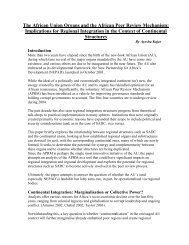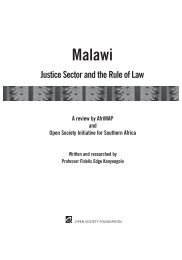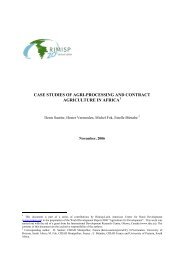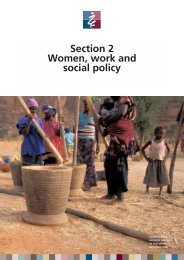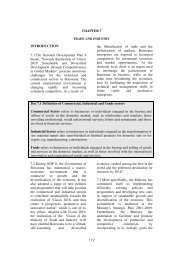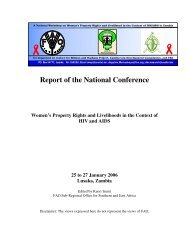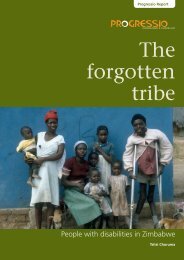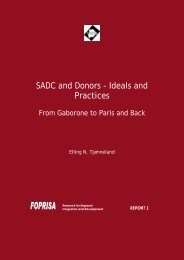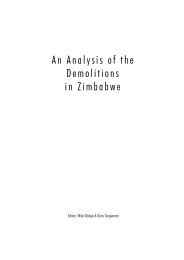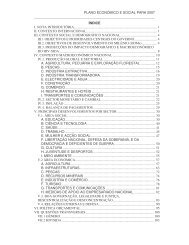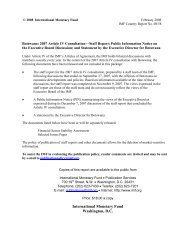400Kb ~ 2 min (33 pages) - SARPN
400Kb ~ 2 min (33 pages) - SARPN
400Kb ~ 2 min (33 pages) - SARPN
You also want an ePaper? Increase the reach of your titles
YUMPU automatically turns print PDFs into web optimized ePapers that Google loves.
accurately, letting the opposition engage the ANC. In fact, there is a significantphilosophical and social distance between the ANC and the DemocraticAlliance that is unlikely to be bridged in the near term. This leads the ANC tokeep the DA at arms length and view the party with suspicion. Why thisapproach?The answer lies in both the ANC’s “project” and the manner in which the DAapproaches its work. With respect to the first, the ANC is prepared to listen toand work with those opposition parties who accept the ANC’s main agenda. Inother words, those parties that may oppose the ANC yet provide useful criticismregarding how to best achieve true equality in South Africa by reversing thelegacies of apartheid, are treated with respect and engaged. Conversely, thoseparties that are perceived as opposing the project itself, and who are intent on“scoring points” by opposing the ANC on nearly every issue and every piece ofproposed legislation for the purpose of “keeping the government on its toes,”are loathedThe relationship between government and opposition is also coloured by styleand tradition. On the one hand, the ANC regards itself as a “non-racial” party,one whose supporters are predo<strong>min</strong>antly African in terms of race and culture,but a party that includes the members of all racial groups. By contrast, itperceives the DA as not only a “white” party, but one that is mired excessivelyin the traditions of the British House of Commons in West<strong>min</strong>ster. Thepreponderance of DA MPs are English-speaking whites, and the style of manyand especially the party leader, Tony Leon, is regarded as unnecessarilyargumentative for argument sake, i.e. that the DA emphasises debate oversubstance and thus does not contribute to better legislation or, by extension, to a“better South Africa.”The ANC’s relationship with other opposition parties is arguably more cordial.ANC MPs frequently remark that much to their initial surprise, they get on wellwith Afrikaans-speaking whites, regardless of their party and including thosewho are members of the Democratic Alliance. The reason given is thatAfrikaans-speaking politicians understand “the ANC’s project”, because theyonce pursued a similar project on behalf of their community—the use of statepower to uplift a subordinate group.(5) The Role of the Speaker in the evolution of the National Assembly. A keyindividual in the development of the National Assembly during the first tenyears of the post-Apartheid era was the Speaker, Frene Ginwala who served inthat capacity from 1994 to 2004. Regarded by many MPs as somewhat10



